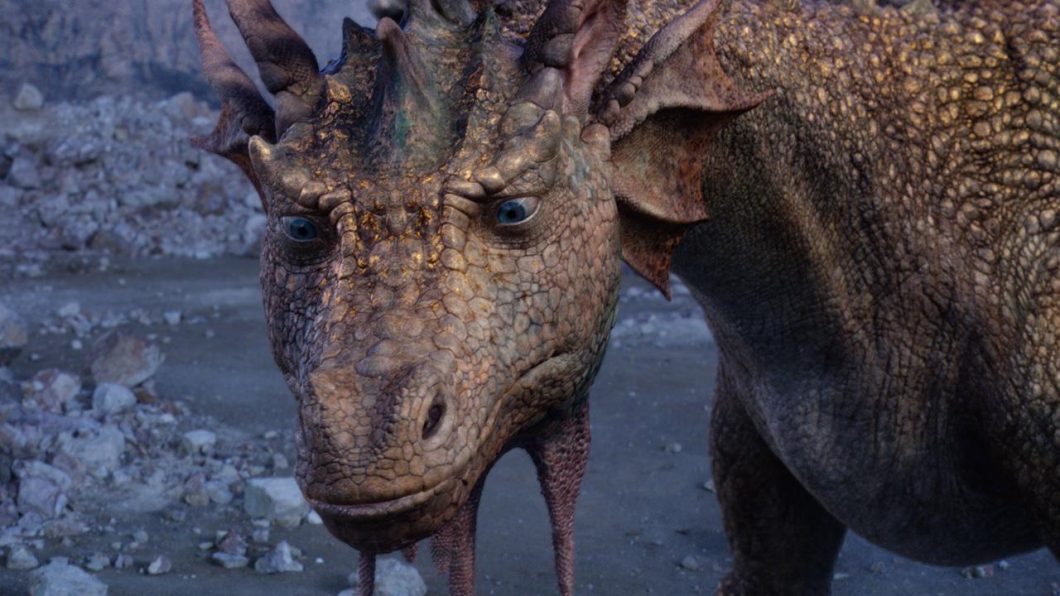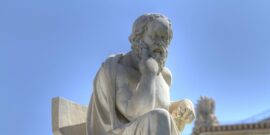We need to rethink how K-12 interlinks with undergraduate education and how undergraduate education interlinks with professional training.
How Not to Become a Dragon
In C.S. Lewis’s The Voyage of the Dawn Treader (1952), the troublesome Eustace Scrubb, shirking his work, wanders off, only to find himself in the presence of a dragon. And not knowing the ways of dragons, Eustace himself becomes one. The narrator identifies the principal source of Eustace’s trouble:
Eustace had read only the wrong books. They had a lot to say about exports and imports and governments and drains, but they were weak on dragons.
There is an echo here, perhaps, of Edmund Burke’s famous defense of the “moral imagination” against the coming age of “sophisters, economists; and calculators,” and there can be no doubt that Lewis’ depiction of Eustace takes aim at the utility-obsessed pragmatism of modern liberal or Progressive education of the sort that now dominates the American educational system.
In this way Lewis anticipates a number of American conservative writers who have made the defense of the moral imagination thematic, beginning with Russell Kirk’s thoughtful 1981 essay “The Moral Imagination,” and including books by William F. Bennett, Gertrude Himmelfarb, Vigen Guroian and, most recently, Anthony Esolen (whose new book Out of the Ashes was reviewed for Law and Liberty by Geoffrey Vaughan).
But unlike many contemporary conservatives, Lewis issues a warning whose source traces back earlier than Burke—a source offering a much deeper and broader educational critique. That source is Plato, and the critique is of human nature itself, especially the integral place of the imagination in human cognition and action.
This is evident in Lewis’ most direct treatment of the subject, The Abolition of Man (1943), the first part of which is peculiarly but significantly entitled, “Men without Chests.” The title is peculiar because one would assume that the loss of humanity’s distinctive nature would be rooted in the loss of humanity’s most distinctive faculty, reason, and reason is most commonly associated with the head, not the chest. But for Lewis it is the chest, “this middle element” of the body, that makes man rational:
It may even be said that by this middle element that man is man: for by his intellect he is mere spirit and by his appetite mere animal.
The title is an explicit allusion to the tripartite soul (infinitely richer than the dualistic souls of Stoic and Epicurean philosophy) of Plato’s Republic, from which the longest quote in Abolition is taken. That passage expresses the core purpose of Plato’s poetic education: to train the guardian’s emotions in the right responses to what is true and beautiful, “so that when Reason at length comes to him, then, bred as he has been, he will hold out his hands to welcome and recognize her because of the affinity he bears to her.” (Lewis is quoting from Book III at 402A.) Without properly trained emotions, reason and choice are powerless. Without chests, men become dragons.
For Plato, the chest is the seat of the both emotion and imagination, which involve the concrete and particular rather than the abstract and the universal. For this reason the education of the chest must be fundamentally musical and poetical, understood in the broadest sense to include all of the fine arts.
This preoccupation with the particular and poetry does not mean the abandonment of reason. The modern schism between a rational reason and a romantic imagination is foreign to the philosopher-poet Plato, who only wrote dialogues in which he bequeathed to us some of the most influential and enduring images in the history of literature.
Behind Plato’s penchant for poetic storytelling is the deep insight that narrative is the fundamental mode of knowledge. Storytelling is the principal means by which we make the world and ourselves intelligible, and intelligibility is always expressed in the form of a story. As Alasdair MacIntyre puts it in After Virtue (1981), “Man is . . . a teller of stories that aspire to truth.” And he paraphrases Plato when he writes: “Deprive children of stories and you leave then unscripted, anxious stutterers in their actions as in their words.”
For Plato, as for Lewis and MacIntyre, poetry is never merely an innocent diversion; but neither is it simply abstract moral or philosophical maxims coated with sugar to help them go down. The power of poetry rests not only in what is expressed, but also in how it is expressed. While Plato gives most of his attention to the content of the stories, he devotes nearly an entire book to the “music” of the stories, to their proper style, melody, harmony and rhythm. Indeed, he characterizes “rearing in music” as “most sovereign.” This is because
rhythm and harmony most of all insinuate themselves into the inmost part of the soul and most vigorously lay hold of it in bringing grace with them; and they make a man graceful if he is correctly reared, if not, the opposite.
In sum, if we want to prevent our children from becoming dragons, we had better start paying careful attention to the stories they hear. And to do this well, we must first prevent ourselves from becoming dragons, by forming our own sensibility to distinguish what is true, beautiful and graceful, and what is false, ugly, and graceless.
The best way to do this? Read great stories aloud to your children. Over and over again. It’s the best way to keep dragons away, from your children, and from yourself.



